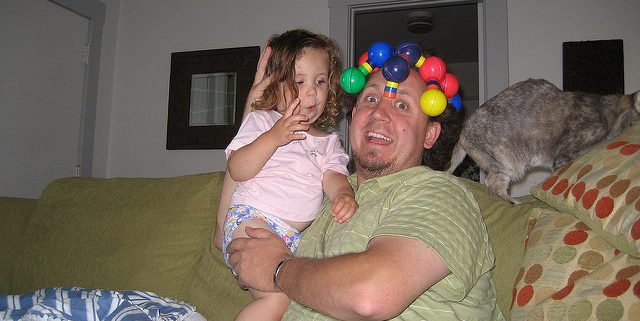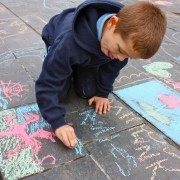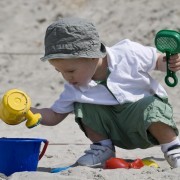Remember to Play
As parent, there are a swag of ‘jobs’ that come with parenting… additional washing, cooking, cleaning, breast or bottle feeding, settling the baby, working through bed-time routines, sibling rivalry, introducing solids, solving problems, answering questions, reading to them, tidying up, talking with them…. and a hundred more jobs…
It’s no wonder that parenting is a tiring job.
In no other role are you on call 24/7, receive no set breaks and get no pay for your work!
Sometimes as parents we get so caught up in all that must be done… that we actually forget the most important thing… the little people around us!
These children didn’t come to us to be ‘chores’. Yes, caring for them can be time consuming and exhausting, but that’s not what they see…. Children see YOU and want to be with you, being part of whatever you are doing. I’m talking about young children here, not teenagers…. that’s a story for another day!
So how do we manage the balance of jobs to be done and spending time with the children?
There’s two ways….
- include them in the jobs, and
- stop doing the jobs and take time out to play.
1 Include them in the jobs
Generally young children want to be with you. If you start early to show them how to pull weeds, or wipe the kitchen benches, or collect sticks for the fire, then they quickly learn that there are jobs to be done as part of the household and that we all do them (to their age/ ability level). What a great message to teach children!
The super organized among you might allocate 20 minutes of ‘job’ time every morning or afternoon, where everyone helps to do some task to help the household.
What sort of jobs can little children do?
When you are hanging out the washing, they could pass you the pegs, or you might be able to sling a low line so that they can hang the socks on that…. Using pegs is great for fine motor development in their fingers too!
In the garden children might help to pull weeds, pick parsley, dig in an area for a new plant or sweep the path free of grass clippings.
If you have animals, children can learn to throw corn to the chickens and maybe collect their eggs, to put out food for the cat, or to wash the dogs’ bowl.
Cleaning up… this might be getting them to help pick up toys – bearing in mind that young children aren’t able to completely tidy up on their own – they will need some help or direction.
Cleaning could also be wiping the sink, dusting the furniture, or pulling up the doona cover.
With any of the jobs you will know that a two year old child, or 4 or 6 won’t be able to do the job as well as you, but they are learning how to do it and they also receive the message that they are helpful and valued in the family.
2 The second way is to stop doing the jobs and take time out to play with them.
This can be a challenge for parents… to just stop —- as you see all the jobs still to be done! However, I can tell you that when you invest as little as 10 minutes focused time playing with your child, they are happy and much less likely to be demanding.
The bottom line is … is it more important to have folded washing or smiling children?
Yes, I know it’s different if you are talking about the need to get dinner ready, but that’s when you revert to step one… include the child in the jobs to be done eg washing the potatoes for dinner. It’s all in how you present it to the child… “I bet you are big enough to help with dinner tonight. Would you like to wash the potatoes, or tear up the lettuce for the salad?” Imagine how good that child is going to feel!
Playing with your children might be building with blocks, drawing, kicking around a ball, collecting sticks, blowing bubbles, playing dress-ups, pretending to be dinosaurs, singing or shaking a rattle with your baby. Focused time on your child equals a smiling child, and a developing sense of their value as an important individual.
So in your busy week ahead…. Remember to Play!
Happy Playing









